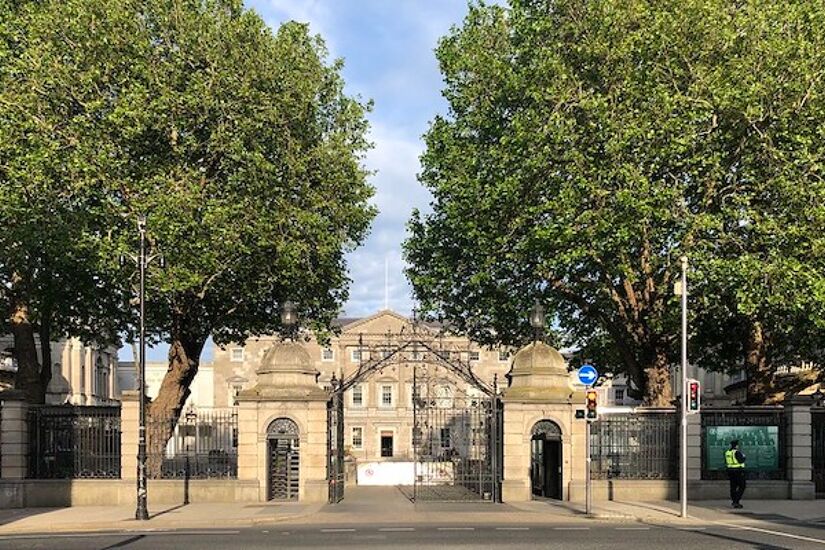What part does sport play in proposed programme for government

Credit: Macdara Ferris (ETPhotos)
So 128 days since the general election, and we finally have a programme for government published by the parties that are looking to form the next government.
The programme will of course need to be ratified by Fine Gael, Fianna Fáil and the Green Party but if it does pass and, as expected, Micheál Martin is elected Taoiseach later this month, what is the new government proposing for sport over the lifetime of the 33rd Dáil?
The draft ‘Programme for Government – Our Shared Future’ issued on Monday, is a 50,000 word / 126 page document with the element on sport included in the ‘Building Stronger and Safer Communities’ Section. Sport gets 850 words across one and a half pages, split between three sections:
- participation
- high performance
- improved capacity and governance.
Participation
The section references the post-COVID19 world we are now living in:
During the pandemic, it was clear that running, cycling, and walking became increasingly popular, as people wanted to mind their physical and mental health. We will build on this.
The elements here are familiar from the Green Party’s election manifesto which noted that protecting the environment would have a positive impact on sport and the party’s strategy for keeping children in sport would be centred on low-stakes participation. The programme states:
We will encourage a low-stakes participation approach to underage sport and examine the impact that such an approach has in increasing participation and excellence.
Other commitments in this section include targeting “overall participation in sport to reach at least 60% of the population by 2027” – this is an increase to the target of 50% that was in the Fine Gael manifesto.
The programme includes another Green element with the commitment to a review “of inclusiveness and participation in all funded sports, to ensure that gender, ethnicity, and culture are not a barrier to involvement” and to “mandate Sport Ireland to develop a programme of interventions to boost participation levels among people with disabilities.”
The programme also commits to deliver a physical education ‘build and modernisation programme’ to ensure more indoor facilities are available for schools and local communities.
High Performance
In their election manifesto Fine Gael had committed to tripling the funding for the high-performance programmes with the goal of securing at least ten medals at the 2028 Olympics in Los Angeles.
While such metrics aren’t included in the programme for government, there is a plan to set “clear and ambitious medal targets over three Olympic/Paralympic cycles” from a high-performance strategy that is to be published to cover the next 12 years with a review every four years.
The aim is also to increase funding so that Ireland can “compete with other highly-successful countries of our size”.
The potential incoming government is also looking to tap into some of our wealthy business people by facilitating “efforts to explore business and philanthropic funding of high-performance sport to complement state funding”.
Both Fianna Fáil and the Greens had included elements in their manifesto on female sport and this is reflected with the commitment to continue to increase funding year on year for the Sport Ireland’s Women in Sports programme and to “develop initiatives to increase the level of media coverage, nationally and locally, of women’s sport and attendance at women’s sport event.”
Improved Capacity and Governance
The issue of governance in sport was certainly brought more into focus during the lifetime of the last Dáil with crises at the Olympic Council of Ireland and the FAI seeing two high profile sports administrators depart the scene. The FAI do not get a specific mention in the draft programme for government but the document notes:
The public rightly expects all Irish sporting bodies to exhibit strong leadership, ethics, and governance throughout their ranks. It is important that all sporting organisations are accountable and that they employ modern working methods.
The programme documents a plan for the government to work with Sport Ireland to ensure that all National Governing Bodies and Local Sports Partnerships adopt the Governance Code for the Community, Voluntary and Charity Sector by the end of next year.
Despite the challenging financial times, the programme notes that the Sports Capital Programme for clubs and local authority sportsgrounds plus the Large Scale Sport Infrastructure Fund will continue with priority for “sports capital investment in areas of historic low levels of participation and deprivation.”
The day the programme was published was the day the Republic of Ireland should have played Poland in EURO2020 in the Aviva Stadium.
Reflecting such events, the programme calls for the development of “a strategy to identify, the type of major sporting events we can and should bid for (in particular those cancelled because of COVID-19), and how these events can be used to increase sporting participation, encourage domestic and international tourism, and promote Ireland.”
This allows the potential for another bid for the Rugby World Cup – Fine Gael had noted in their election manifesto that they were open to bid for that tournament.
Gambling
Not covered specifically within the Sport section but elsewhere the programme for government commits to establishing “a gambling regulator focused on public safety and wellbeing, covering gambling online and in person, and the powers to regulate advertising, gambling websites and apps.” This was an item that was included in the Fianna Fáil election manifesto, although there is no specific mention in the programme on that parties pledge on a ‘whistle-to-whistle’ ban on live games.
Minister for Sport
Subject to party approval of the programme, we will have to wait for the election of the Taoiseach and the announcement of his cabinet at the end of the month to see who will be the new Minister for Transport, Tourism and Sport. With Transport a critical part of that department, it may be one that the Green Party might want to take charge of. It is expected that both Fianna Fáil and Fine Gael will have six senior ministerial posts with the Green Party taking three.
First Division Alliance 'increasingly positive about the possibility of returning to competitive action' in August https://t.co/X8bj6qd18opic.twitter.com/EJ7hkEEeaH
— Extratime.ie (@ExtratimeNews) June 15, 2020

